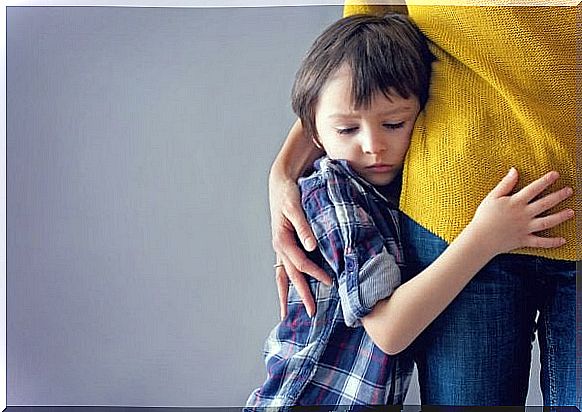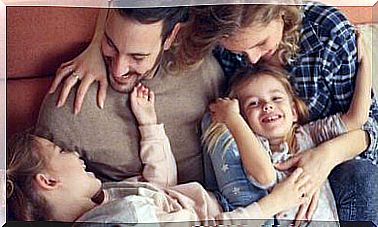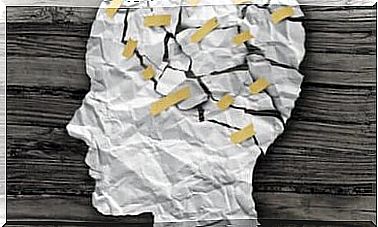Conditioned Anxiety: An Obstacle To Connecting With Others

Conditioned anxiety has to do with those situations in which we feel distressed even though they pose no danger or risk. At the level of social relationships, it can manifest itself as a fear of getting in touch with others.
It is important to note that conditioned anxiety is not shyness, although those who experience it may be labeled shy or reserved. In this case, it’s not a matter of temperament. Rather, it is that in the past we learned this fear and did not try or fail to understand and overcome it.
When we feel conditioned anxiety about social relationships, it is very difficult to get in touch with others, establish friendships or harmonious bonds with our co-workers. Of course, this also ends up hindering a possible project to build a loving relationship.

Attachment and Conditioned Anxiety
The first way we relate to others is through attachment. When we are born, we do not feel like individuals independent of our mother. The baby looks for a protective support in the mother figure and, at the same time, a reference point to grow and know the world.
Attachment is the determining emotional link in early childhood. It is fundamental in a person’s future development. There is a direct relationship between this initial attachment bond and an individual’s mental health. A mother who is available and sensitive to the child’s needs in the early years is a guarantee for the mental health of the adult.
During these early stages, separation anxiety sets in. It is a feeling of anguish that appears when we move away from our mother or the caring figures.
When these anxiety experiences are severe or occur within a highly unstable structure, a first form of conditioned anxiety is configured. The conditioning in this case makes us believe that we cannot trust our environment, because there will not always be someone to look after us, protect us or care for us, despite our vulnerability.
childhood and adolescence
During childhood and adolescence we complete our process of physical and mental maturity. At these stages, we also develop new ways to relate to others. Between 3 and 6 years old, play becomes the center of our world.
Everyone who plays with us is our friend. By sharing a game with others, we learn the first notions of rules and norms, along with their usefulness. We also have an idea of how dense and strong our circle of social support is.
Between 6 and 11 years old, we understand that we are part of a culture and that social relationships are regulated by norms. Sometimes they teach us all this with love and understanding. Sometimes, with severity and tyranny. In the latter case, conditioned anxiety appears. We come to believe that we are a constant object of censorship and we learn to be afraid to act.
The teenage years are definitive. We need a balance between our self who lives in the family, the one who plays the role of student at school, and the one who forms a nucleus of friends and begins to forge his own identity.

The difficulty of connecting with others
The difficulty of connecting with others begins to become evident to an individual during adolescence. One of the reasons for this to occur is the set of deficits that may have accumulated during the previous stages. In particular, when attempts to approach or expressions of affection were punished. Thus, one enters the territory of conditioned anxiety in relation to relationships with others.
In this way, we are always waiting for the system to reject us, hurt us, or exclude us. We start to behave like rejected, hurt or needy individuals. We are afraid of the other and can accept a relationship in which we show great submission or strong dependence.
On the other hand, when we are faced with a social situation, we are invaded by restlessness. We resolve the situation by “disappearing”, by being overly condescending or implementing strategies to dissociate.
Something as natural as bonding with others becomes a complex problem. Conditioned anxiety causes us to put up barriers and keep everything from flowing. This has different consequences on our mental health.
Nevertheless, it should not be forgotten that everything that has been learned can also be ‘unlearned’: there are ways to reconstruct what was poorly constructed in the past.









